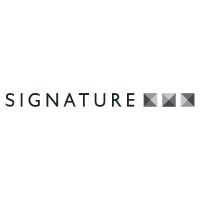

Group General Counsel | Auchan Retail



Anne-Sophie Jourdain
Group General Counsel | Auchan Retail
Team size: 60 people
What are the most significant cases, projects and/or transactions that you and/or your legal team have recently been involved in?
Over the past year at Auchan Group, I have led several high-impact strategic projects, including:
M&A projects both internationally and in France — notably the acquisition of 98 Casino stores in France.
The creation of a global purchasing alliance with Intermarché and Casino, joining the EVEREST and EPIC international buying alliances of European retailers.
In addition, I am spearheading various turnaround initiatives aimed at strengthening the company’s performance in France and abroad. These include the global negotiation of all group insurance policies and strategic negotiations to fundamentally reshape the group’s financing mechanisms.
How do you approach managing legal aspects during periods of instability or crisis to ensure the organisation’s resilience?
During challenging times, my role is to support the company from both a legal and strategic perspective. I believe it is essential to be prepared for adversity by establishing a strong legal foundation built on foresight, influence, and adaptability.
1. Embedding legal insight into leadership decisions
Legal teams should be involved in key decision-making processes. In periods of instability, this ensures that leaders take into account both legal risks and immediate business needs. Our role is to identify legally sound pathways that allow progress, even when traditional approaches may not be viable.
2. Legal as an enabler of operational continuity
Crises rarely respect organisational boundaries. For this reason, I structure my teams around agility, cross-functional responsiveness, and clarity of purpose. The legal team must act swiftly, pragmatically, and ethically — often with limited information and under significant time pressure. Our guiding question should always be: how do we protect the company without paralysing it?
3. Building resilience through governance discipline
Periods of instability are the ultimate test of governance. I strengthen simple yet robust frameworks that ensure traceable decision-making, escalation protocols, and clear accountability. This approach not only safeguards the company legally but also fosters internal confidence and cohesion — two often underestimated pillars of organisational resilience.
4. Continuous learning and improvement
Every crisis provides an opportunity to evaluate and enhance our systems. Each disruption exposes hidden weaknesses. The legal function plays a crucial role in capturing these lessons and incorporating them into models that will withstand future challenges.
In conclusion, managing legal matters during a crisis is not about following a checklist — it is about adopting the right mindset. It means developing a legal team that remains calm under pressure, exercises sound judgment, and focuses on enabling the company to emerge stronger — legally, reputationally, and operationally.
Have you had any experiences during your career as a lawyer that stand out as
particularly unique or interesting?
Throughout my professional career, I have placed great importance on developing new skills and taking on responsibilities beyond my role as Group General Counsel. For instance, I trained as a professional mediator to handle conflict resolution with method and objectivity. In addition, I was appointed as a Commercial Judge at the Commercial Court of Paris (“Tribunal de Commerce de Paris”), enabling me to gain deeper insight into the main commercial challenges faced by companies and to further develop my analytical skills through engagement with my peers.
Given the current geopolitical shifts and growing uncertainties around
international free trade, has your company’s risk profile evolved, and are you
taking measures to address these challenges?
In recent years, geopolitical volatility has become a defining feature of international business rather than an exception. This shift has inevitably altered our company’s risk profile, particularly in relation to market access, contractual stability, and compliance exposure.
As an international legal team, we must adopt a two-pronged strategy: safeguarding the business against short-term regulatory shocks while simultaneously embedding long-term resilience within our business model.
To achieve this, we have developed modular contractual clauses covering sanctions, export controls, data localisation, and force majeure events. These clauses allow rapid adaptation to changing circumstances, replacing the reliance on static templates. This balance between legal precision and commercial pragmatism ensures that our contracts remain both protective and flexible.
At the same time, we have reinforced cross-functional collaboration. Legal is now involved early in strategic discussions with departments such as finance, supply chain, and procurement, rather than being consulted only after decisions are made. This integrated approach enables us to anticipate regulatory challenges before they materialise and to design solutions that are legally robust and operationally practical.
We have also worked to ensure that compliance is shared across the organisation rather than confined to the legal function. Through targeted workshops and concise guidance materials, we equip colleagues with the tools to identify potential red flags independently.
Ultimately, addressing today’s geopolitical challenges is about more than merely mitigating downside risk. It is about positioning the business to respond swiftly, ethically, and credibly when the environment shifts. By embedding flexibility into our legal frameworks, fostering cross-functional collaboration, and leveraging technology for insight, we turn legal expertise into a driver of resilience and trust.
In this way, the evolution of our risk profile has reinforced our conviction that legal leadership is not just about protecting the company from uncertainty, but about empowering it to thrive in the midst of it.
Based on your experiences in the past year, are there any trends in the legal or
business world that you are keeping an eye on that you think other in-house
lawyers should be mindful of?
One trend I believe all legal teams should consider is the evolution of artificial intelligence.
After more than a year in the conceptual space, AI has recently moved into the practical space, and it is now reshaping our processes of contract review, risk flagging, and even the process strategy for boards of directors.
The opportunity for legal teams is significant. Routine legal activities (document review, compliance oversight) are likely to shift operational responsibilities from jurists to technology, enabling those professionals to focus on higher-value work: advising, anticipating, and directing. In the end, the legal function gains more power, rather than less.
Finally, a trend that is still emerging but will be highly impactful is Legal Operations. LegalOps has transformed the legal function from a ‘gatekeeper’ to an ‘enabler’ by designing efficient processes, implementing technology to drive efficiency, and translating complex law into practical ‘guidance’. LegalOps can train non-lawyers to engage with risk in ways they are comfortable with, make efficiency tangible through process and structure, and empower lawyers to provide strategic, meaningful advice.
How can general counsel foster a corporate culture that supports ESG principles and compliance across all levels of the organisation?
Set the tone from the top: Ensure that leadership actively promotes and demonstrates commitment to ESG principles.
Integrate ESG into governance structures: Embed ESG considerations into board and committee responsibilities, decision-making processes, and overall corporate governance frameworks.
Embed ESG in risk management and compliance programmes: Incorporate ESG factors into risk assessments, monitoring, and compliance procedures to identify and mitigate potential impacts effectively.
Training: Provide targeted training and awareness programmes to equip employees and management with the knowledge and skills needed to apply ESG principles in their roles.
Embed ESG in contracts, deals, and policies: Integrate ESG criteria and obligations into contractual clauses, transaction processes, and internal policies to ensure alignment with sustainability and ethical standards across all operations.
AI has been taken seriously as a potentially revolutionary technological change in
the legal world for a number of years now. Has it had a meaningful impact in how
your legal team works in this time?
First and foremost, the legal team plays a pivotal role in implementing AI within the company. A dedicated group of in-house lawyers has worked closely with the Business, IT, Cybersecurity, and Data Protection Officer (DPO) teams to establish group-wide guidelines, operational processes, and practical resources — such as guidance documents for developers. Thanks to the leadership of the legal department, business units are now able to use AI within a secure and well-regulated framework.
I have instilled within the legal team a spirit of continuous improvement and adaptability. As a result, several initiatives are underway to provide greater autonomy to the business in handling day-to-day, non–value-added tasks. Examples include the development of AI tools to answer basic queries or analyse purchasing conditions. The legal team is actively engaged in and enthusiastic about these projects, recognising the added value they bring and how such technology can enhance their everyday work.
What is a cause, business or otherwise, that you are passionate about? Why is
this?
Corporate strategy, M&A and negotiation are areas that I am passionate about on a daily
basis.
What factors influence your team’s decision to use external legal services versus
handling matters in-house, and what criteria are used to evaluate their
performance?
Expertise is essential, and trust is non-negotiable. The selection of external legal services is carried out through tenders for strategic projects, while for less critical matters, criteria such as the level of expertise are applied.
External lawyers must demonstrate not only their specialised expertise but also their ability to provide pragmatic advice that reflects an understanding of the company’s needs and constraints. Moreover, they are expected to challenge, when appropriate, the assumptions of the legal department to ensure well-rounded and effective legal solutions.
How does your team contribute to the overall business strategy of the company?
Can you share an example of a recent legal-led initiative that had a significant
impact?
The multidisciplinary legal department of a major retail company serves as a true legal accelerator. It ensures the security of day-to-day operations through strict regulatory compliance (hygiene, pricing, GDPR), the drafting of robust contracts (with suppliers, for leases), and the protection of proprietary brands. It drives strategic initiatives by streamlining commercial negotiations, supporting network expansion (acquisitions, new store openings), and safeguarding the launch of innovative services (e-commerce, click & collect). It also provides essential strategic guidance for the ethical development of products (private labels, labelling), the enhancement of CSR governance, and the anticipation of emerging risks (such as the AGEC law). In essence, it mitigates risks, optimises costs, and creates value—becoming a key performance driver and an indispensable strategic partner for the brand.
Looking forward, what trends do you foresee in the legal landscape over the next 5–10 years that companies should prepare for?
In the coming years, the legal sector is likely to undergo significant transformation driven by technologies such as AI, automation, and blockchain. These innovations will streamline routine tasks, enhance predictive capabilities, and enable the creation of smart contracts.
Legal professionals will increasingly take on the role of strategic advisors, focusing on risk management, regulatory compliance, and a deeper understanding of business operations. This evolution will require a broader skill set that combines legal expertise with technological proficiency and data analysis capabilities. New roles are also expected to emerge, including positions such as Legal Operations Specialists and Legal Engineers.
The way legal services are delivered will continue to evolve, with greater adoption of Legal Tech, the growth of alternative legal service providers, and stronger collaboration across the legal ecosystem. The emphasis will be on improving efficiency and accessibility for all stakeholders, while carefully addressing the ethical and legal challenges associated with the use of AI.